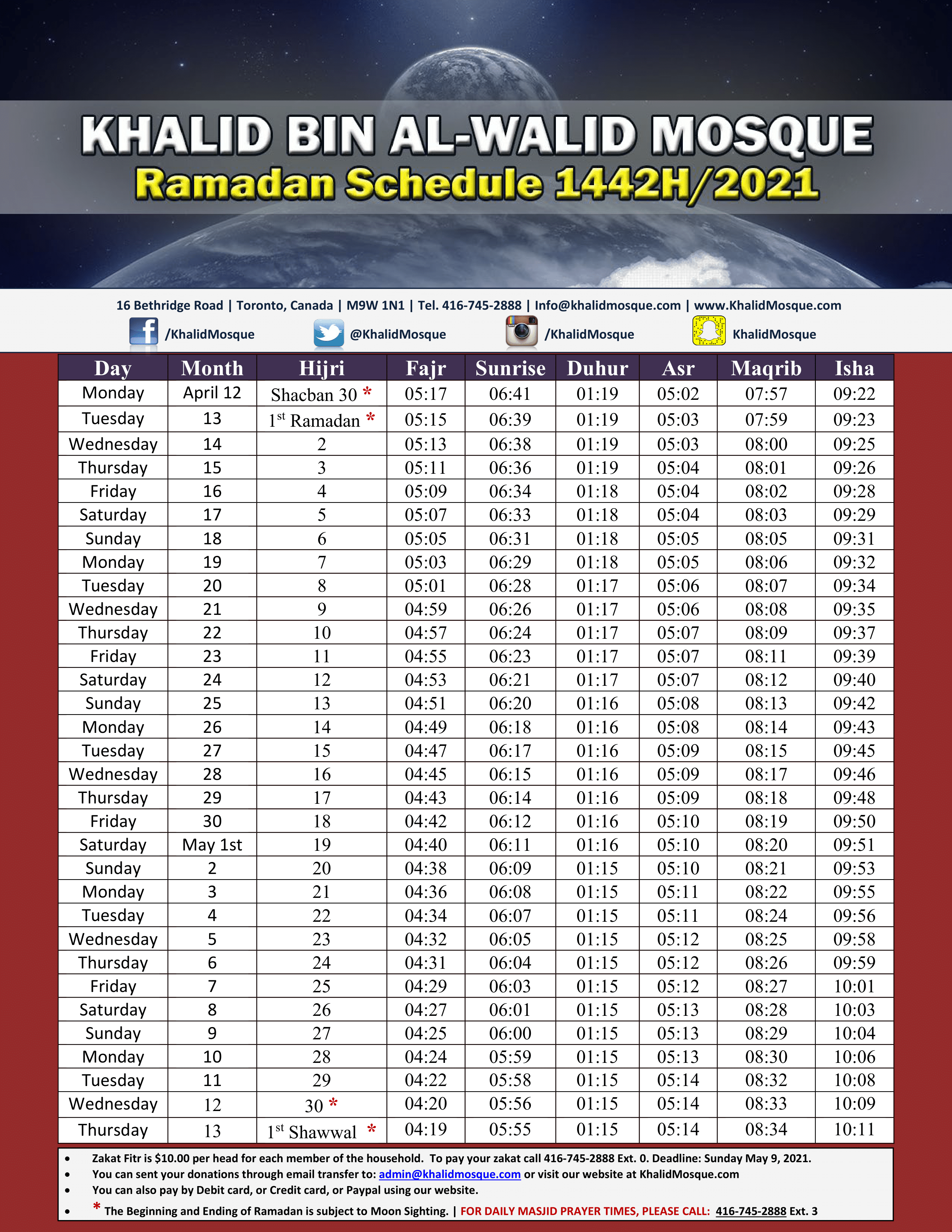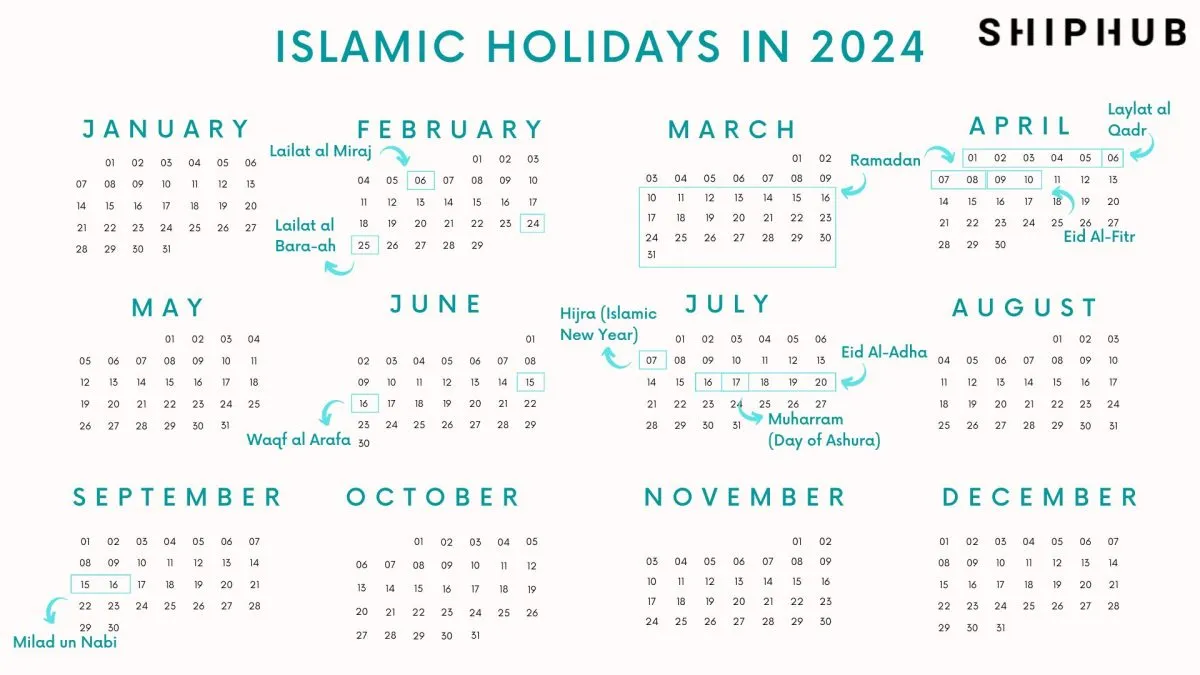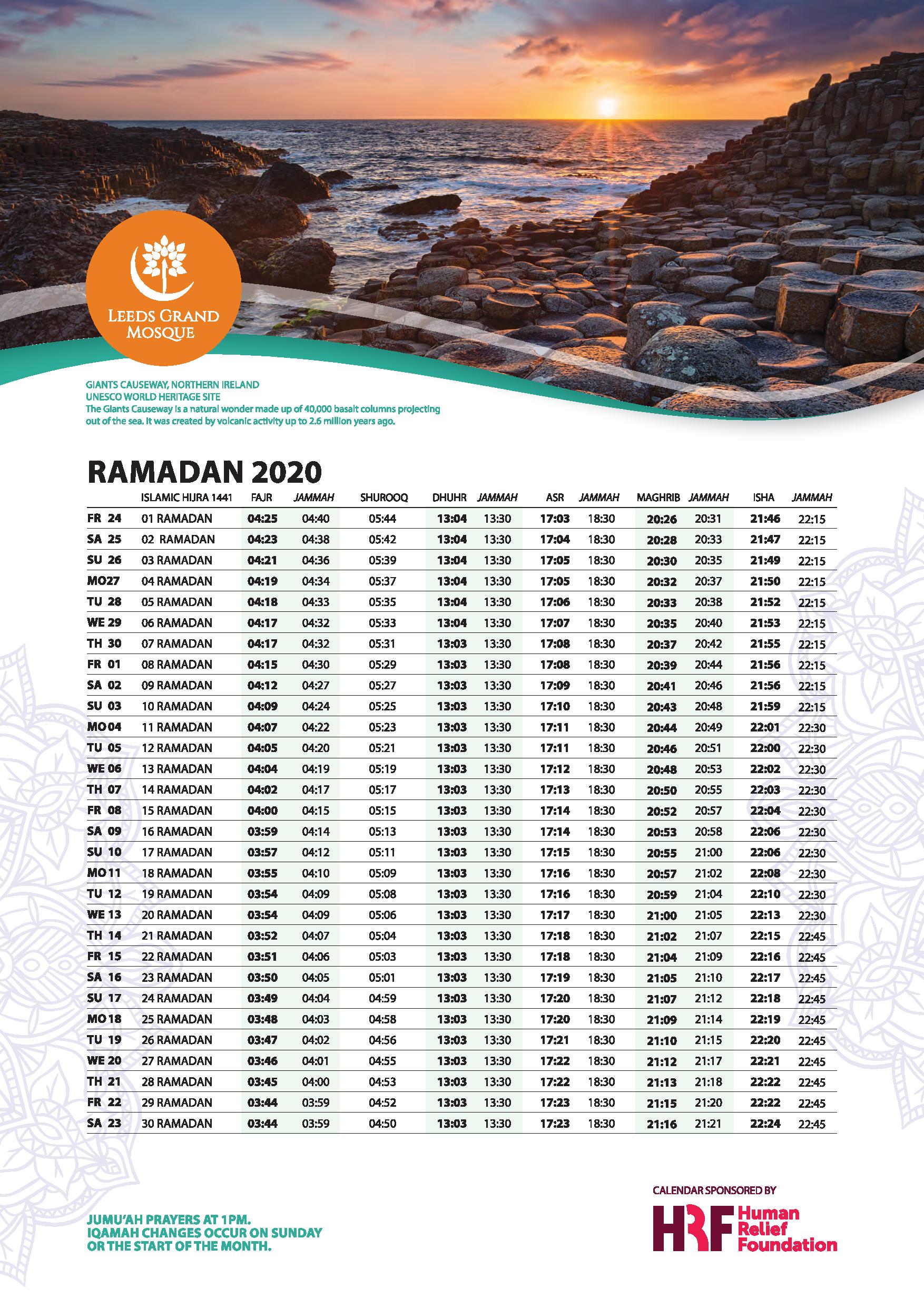Ramadan is one of the most sacred months in the Islamic calendar, observed by Muslims worldwide as a month of fasting, prayer, and spiritual reflection. It holds immense significance for Muslims, as it commemorates the revelation of the Quran to the Prophet Muhammad (peace be upon him). The anticipation of when Ramadan starts is a topic of great interest each year, as it follows the Islamic lunar calendar, which shifts by approximately 10 to 12 days earlier each year compared to the Gregorian calendar. Understanding the timing of Ramadan is essential not only for Muslims but also for those who wish to learn more about this holy month.
This article aims to provide a detailed and comprehensive explanation of when Ramadan starts, the factors that influence its date, and the cultural and religious significance of this period. Whether you're a Muslim preparing for the month of fasting or someone curious about Islamic traditions, this guide will offer valuable insights into the timing and observance of Ramadan.
Throughout this article, we will explore the history of Ramadan, its connection to the lunar calendar, and how the start of Ramadan is determined. Additionally, we will address common questions and misconceptions surrounding the holy month, ensuring that readers have a thorough understanding of its importance in the Islamic faith.
Read also:Luna Aoki
Table of Contents
- The History of Ramadan
- Understanding the Islamic Lunar Calendar
- How the Start of Ramadan is Determined
- The Significance of Ramadan
- How Muslims Observe Ramadan
- Health Benefits of Fasting
- Challenges During Ramadan
- Frequently Asked Questions About Ramadan
- Ramadan's Global Impact
- Conclusion
The History of Ramadan
Ramadan holds a profound place in Islamic history, as it marks the month when the Quran was revealed to the Prophet Muhammad (peace be upon him). According to Islamic tradition, the first verses of the Quran were revealed during the night of Laylatul Qadr, which is believed to occur in the last ten days of Ramadan. This event is considered one of the most pivotal moments in Islamic history.
Key Events in Ramadan
Throughout history, Ramadan has been a time of spiritual renewal and devotion. Below are some key events associated with Ramadan:
- The revelation of the Quran to the Prophet Muhammad (peace be upon him).
- The Battle of Badr, one of the earliest and most significant battles in Islamic history, which took place during Ramadan.
- The conquest of Mecca, which occurred in the 8th year of the Hijra, during Ramadan.
These historical events underscore the importance of Ramadan as a month of triumph, reflection, and spiritual growth for Muslims around the world.
Understanding the Islamic Lunar Calendar
The Islamic calendar, also known as the Hijri calendar, is a lunar calendar consisting of 12 months, each lasting 29 or 30 days. Unlike the Gregorian calendar, which is based on the solar year, the Islamic calendar is based on the cycles of the moon. This means that Ramadan shifts earlier by approximately 10 to 12 days each year in relation to the Gregorian calendar.
Read also:Metallica Instagram
How the Lunar Calendar Affects Ramadan
Because the Islamic calendar is lunar-based, the start of Ramadan depends on the sighting of the new moon. This can vary slightly from region to region, depending on local moon-sighting practices. Here are some key points about the lunar calendar's influence on Ramadan:
- Ramadan begins with the sighting of the crescent moon after the month of Sha'ban.
- The month concludes with the sighting of the next new moon, marking the start of Shawwal and the celebration of Eid al-Fitr.
- The shifting nature of the Islamic calendar means that Ramadan occurs in different seasons over time, affecting the length of fasting hours in various parts of the world.
How the Start of Ramadan is Determined
The start of Ramadan is determined through a combination of scientific calculations and traditional moon-sighting practices. While scientific methods can predict the appearance of the new moon with great accuracy, many Muslim communities still rely on local moon-sighting committees to officially announce the start of Ramadan.
Factors Influencing the Start of Ramadan
Several factors contribute to determining the start of Ramadan:
- Moon Sighting: The traditional method of observing the new crescent moon with the naked eye or through telescopes.
- Scientific Calculations: Modern astronomy provides precise predictions of the moon's phases, aiding in the estimation of Ramadan's start.
- Regional Differences: Some countries follow a unified calendar, while others rely on local sightings, leading to slight variations in the start date.
This combination of tradition and science ensures that the start of Ramadan is accurately determined while respecting cultural and religious practices.
The Significance of Ramadan
Ramadan is not just a month of fasting; it is a time of spiritual reflection, self-discipline, and community. Muslims around the world use this period to deepen their faith, engage in acts of charity, and strengthen their connection with Allah. The significance of Ramadan extends beyond individual practices, impacting families, communities, and societies as a whole.
Core Practices During Ramadan
During Ramadan, Muslims observe several core practices, including:
- Fasting (Sawm): Abstaining from food, drink, and other physical needs from dawn to sunset.
- Prayer (Salah): Performing additional night prayers known as Taraweeh.
- Charity (Zakat): Giving to those in need as a form of purification and gratitude.
- Recitation of the Quran: Many Muslims aim to complete the recitation of the entire Quran during Ramadan.
These practices reinforce the values of patience, empathy, and devotion, making Ramadan a transformative experience for many.
How Muslims Observe Ramadan
The observance of Ramadan varies slightly depending on cultural and regional traditions, but the core practices remain consistent. Muslims wake up early to have a pre-dawn meal called Suhoor, which provides sustenance for the day ahead. They break their fast at sunset with a meal known as Iftar, often shared with family and friends.
Customs and Traditions
While fasting is a universal practice, the way Ramadan is observed can differ across cultures:
- In some countries, Iftar is celebrated with traditional foods and sweets.
- Communal prayers and gatherings are common, fostering a sense of unity and belonging.
- Many Muslims take time off work or adjust their schedules to focus on spiritual activities.
These customs highlight the diversity and richness of Ramadan celebrations worldwide.
Health Benefits of Fasting
While Ramadan is primarily a spiritual practice, fasting during this month also offers several health benefits. Scientific studies have shown that intermittent fasting can improve metabolic health, boost brain function, and enhance overall well-being. However, it is important for individuals with specific health conditions to consult with a healthcare professional before fasting.
Key Health Benefits of Fasting
Some of the health benefits associated with fasting during Ramadan include:
- Improved insulin sensitivity and blood sugar control.
- Weight loss and reduced body fat.
- Enhanced mental clarity and focus.
- Strengthened immune system and cellular repair processes.
These benefits underscore the holistic nature of Ramadan, which promotes both spiritual and physical well-being.
Challenges During Ramadan
While Ramadan is a time of spiritual growth, it also presents challenges, particularly for those living in regions with long daylight hours or demanding work schedules. Balancing fasting with daily responsibilities can be difficult, but many Muslims find creative ways to adapt and thrive during this month.
Overcoming Challenges
To address the challenges of fasting, individuals can:
- Plan meals carefully to ensure adequate nutrition during Suhoor and Iftar.
- Stay hydrated by drinking plenty of water before and after fasting hours.
- Adjust work schedules or seek flexibility from employers.
- Practice mindfulness and stress-reduction techniques to maintain mental well-being.
By addressing these challenges proactively, Muslims can fully embrace the spirit of Ramadan.
Frequently Asked Questions About Ramadan
Here are some common questions and answers about Ramadan:
- Q: Can children and elderly people fast during Ramadan?
- A: Children are not required to fast until they reach puberty, and elderly individuals may be exempt if fasting poses a health risk.
- Q: What happens if someone accidentally breaks their fast?
- A: If someone unintentionally eats or drinks during fasting hours, they can make up for the missed day later in the year.
- Q: Is travel an excuse to skip fasting?
- A: Travelers are permitted to break their fast if it poses a hardship, but they must make up the missed days later.
Ramadan's Global Impact
Ramadan has a profound impact on a global scale, influencing economies, cultures, and communities. During this month, businesses adjust their operations, media outlets produce special programming, and governments implement policies to accommodate fasting practices. The global observance of Ramadan highlights the unity and diversity of the Muslim community.
Economic and Cultural Effects
Some of the key global impacts of Ramadan include:
- Increased sales of food and beverages during Iftar and Suhoor.
- Boost in charitable activities and donations to those in need.
- Enhanced cultural exchange and interfaith dialogue.
These effects demonstrate the far-reaching influence of Ramadan on societies worldwide.
Conclusion
Ramadan is a month of profound spiritual significance, observed by millions of Muslims around the globe. Understanding when Ramadan starts and the factors that influence its timing is essential for appreciating the depth and complexity of this holy month. From its historical roots to its cultural and health implications, Ramadan offers a rich tapestry of traditions and practices that unite the Muslim community.
We encourage readers to share their thoughts and experiences about Ramadan in the comments section below. Additionally, feel free to explore other articles on our site for more insights into Islamic traditions and global cultures. Together, let's celebrate the spirit of Ramadan and the values it promotes: compassion, resilience, and unity.


